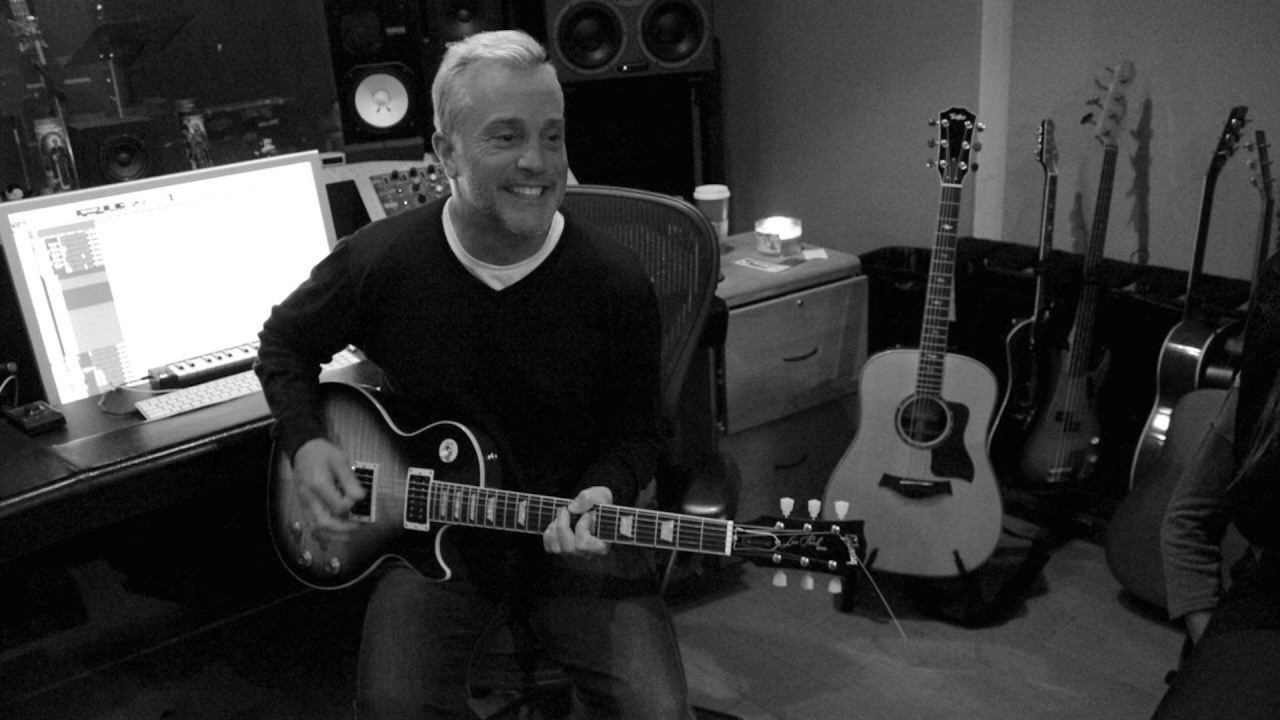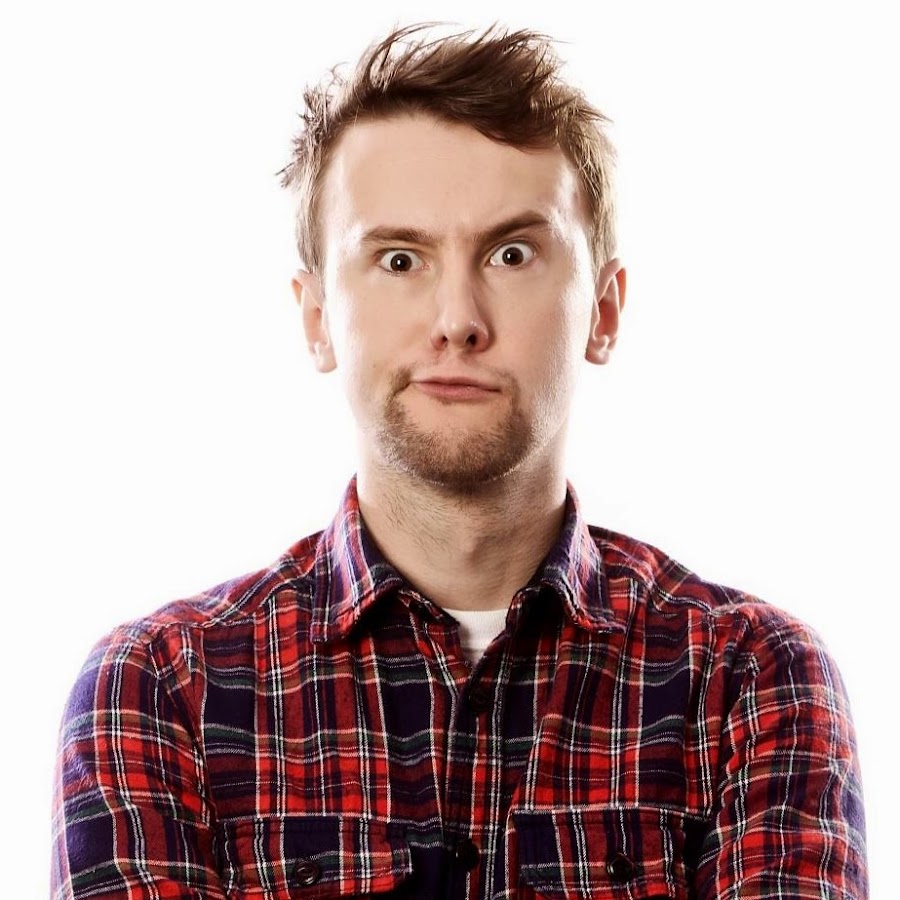John Feldmann is an American musician, songwriter, record producer and A&R man. He’s produced and co-written songs for the likes of Good Charlotte, Papa Roach, Panic! At The Disco, Black Veil Brides and All Time Low. He’s also helped sign, develop and break The Used, Itch, Beartooth, 5 Seconds Of Summer and more, and the albums he’s worked on have grossed more than 34 million sales worldwide. In short, he’s played a major role in shaping the sound of modern day rock music.
But anyone over the age of 21 will perhaps know him best as the singer and guitarist in LA ska punks Goldfinger, who alongside The Mighty Mighty Bosstones, Reel Big Fish, Less Than Jake and Save Ferris helped take the third wave of ska movement into the mainstream.
And if you’re over 30, you might even remember Feldmann’s short lived funk rock band the Electric Love Hogs. Tommy Lee co-produced their first and only album, whilst other players on that record included Stephen Perkins (Jane’s Addiction), Dave Kushner (Velvet Revolver), John Norwood Fisher (Fishbone) and Bobby Hewitt (Orgy), and the band were responsible for giving Pearl Jam, Alice In Chains, Korn, Rage Against The Machine and Tool some of their first gigs in LA.
TeamRock called him at his Californian home to chat all about his storied career so far…
When did you start to get obsessed by music?
John: “My first expansion beyond the Star Wars soundtrack was Queen, and I bought every album by them up until The Game. From there I got into The Who. Then I bought the first Pete Townsend solo record Empty Glass, and I saw he thanked the Sex Pistols in the liner notes. So Pete Townsend was my gateway into punk rock, and that’s when I started actually playing music. I was probably around 12 years old when I started playing bass guitar, and one of the first songs I learned was You Say You Don’t Love Me by the Buzzcocks. Then I learned Baba O’Riley by The Who.”
**Who inspired you to form your own band?
**“Initially, I got into the British explosion of punk rock with bands like the Sex Pistols, Buzzcocks and The Clash. Then this guy called Chris moved to my neighbourhood from Lake Tahoe. He was a senior in high school when I was a freshman, and he became like my mentor. He was in a band called Urban Assault who used to play a lot of shows with 7 Seconds, and he turned me on to all the Californian punk rock bands around at that time, like Black Flag, Adolescents and TSOL. He was friends with all of them. One day, when I was about 13, he brought Social Distortion over to my house and they set up in my living room whilst my mom was out at work, and played a bunch of songs. I saw them play about eight or nine times after that whilst I was at high school, and Mike Ness was the coolest fucking dude I’d ever seen on stage. I wanted in! So, Social Distortion was the band that did it for me.”
**What was your first band called?
**“It was called Family Crisis and I was in that band until I was 15. We toured, man! We went to Lake Tahoe and played shows with 7 Seconds and Bad Religion. There were only a couple of punk bands in my community at that time, so we really went for it. One of the others was Steve Caballero’s band The Faction, and they were super influential on the whole skate punk scene. He was probably the greatest skateboarder of all the time whilst I was growing up, and the whole Southern Californian punk rock scene was hugely influenced by skateboarding culture: I bleached my hair for the first time after seeing a picture of Duane Peters in Thrasher magazine. I learned maybe five or six songs on bass before I started writing my own songs, as I figured out pretty early on that my ability to write my own music surpassed my ability to learn someone else’s. My songs were a lot simpler, for a start. I mean, for all intents and purposes Baba O’Riley was a progressive rock song, and John Entwistle was a bass legend. So I started writing my own much simpler punk rock songs for Family Crisis.”
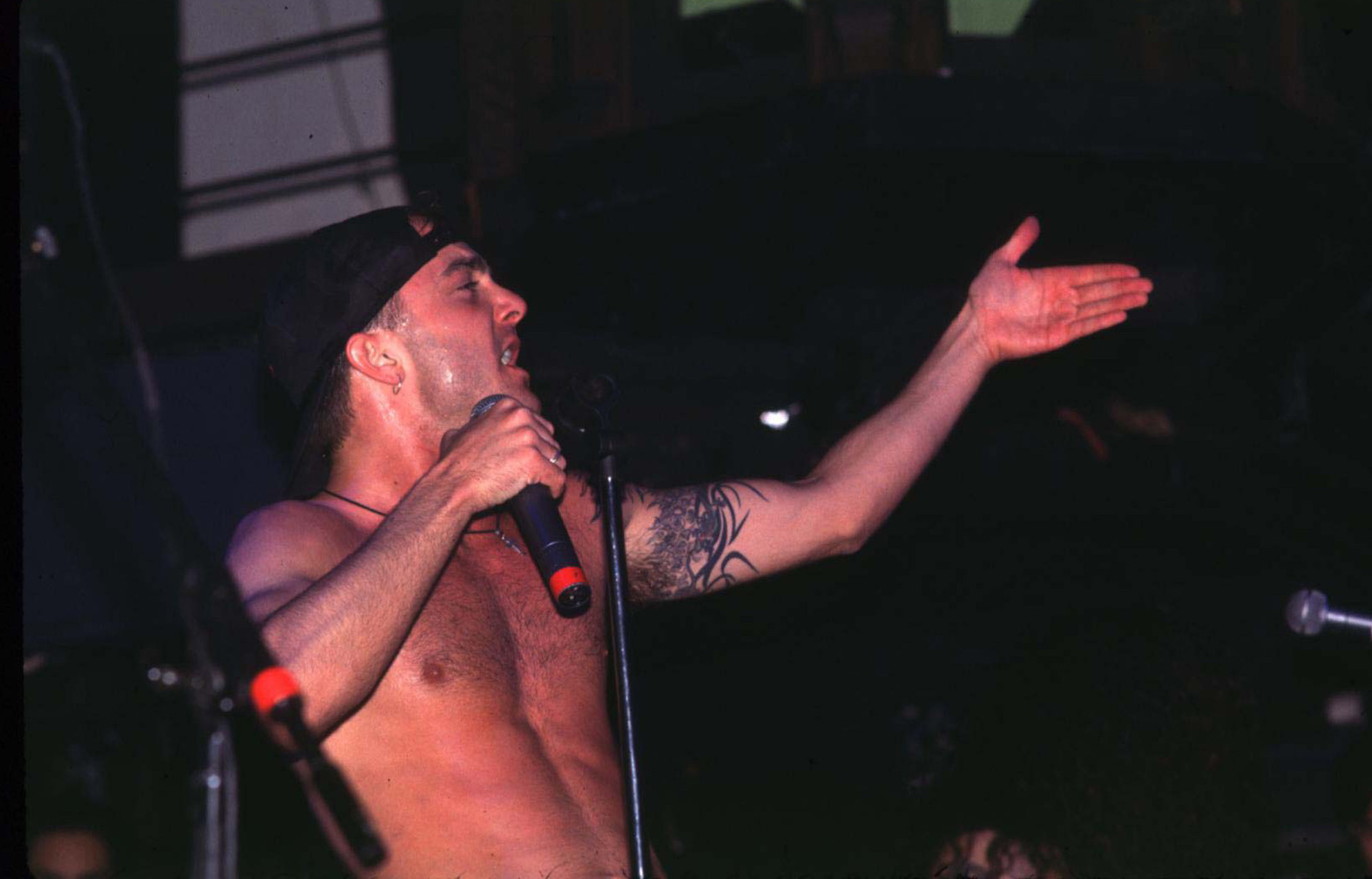
In the late ‘80s you formed Electric Love Hogs with Dave Kushner, who later went on to play with Danzig and Velvet Revolver. The band released a self-titled album in 1992, before breaking up the following year. What do you remember from that time?
“I’d been out of high school for about two years and in 1987 I moved to LA with my friend Donni Campion, who was the guitarist in Family Crisis. All he used to listen to was Hendrix and Metallica – all day, every day. So he became like a tasteful shredder type of guy, and he wanted to start writing more expansive music that went beyond three chord, minute-and a half long songs about hating our parents. So Donni and I started this band with a couple of LA locals: Dave Kushner and Bobby Hewitt, who went on to start Orgy. Our real mission statement was to be the ultimate party band: somewhere between the Red Hot Chili Peppers and Metallica. Tommy Lee came and saw us play a club show one night and he really digged us, so he put us forward to his A&R guy and we got signed after this crazy bidding war, which happened a lot back in the 80s. At that point the kind of bands getting signed were hair metal bands like Poison and Warrant, and we stood out because we were a funk rock band that was a lot more aggressive. We’d play with our shirts off and instigate circle pits, all that shit. We fucking owned it in LA. But the songs were terrible and I still can’t listen to them to this day. Vocally, I found the style very uncomfortable as well, and I lost my voice after nearly every show. It was a cool time though. Mötley Crüe were the biggest band on the planet back then, and to have Tommy Lee work on the record with us was an incredible experience. Plus, Fishbone are my favourite live band ever and we also had John Norwood Fisher involved, which was amazing.”
How did you get Stephen Perkins from Jane’s Addiction to play on the album?
“At that time, the music scene was really transitioning from hair metal into this post-punk renaissance, and Jane’s Addiction, the Chili Peppers and Fishbone owned LA. Those three bands played shows together all the time, and for me to sort of be in bed with them and open shows for them was fucking amazing. I was only 20 years old. I was just a kid, man. I was working for $7 an hour selling used clothing, and all of a sudden I got a record deal. I thought I’d fucking made it. I was in Tommy Lee’s mansion one day with him and Heather Locklear having dinner, and I thought it was all happening for me. But then we got dropped. We were signed to a label and dropped within a year, and that was it.”
It didn’t take you long to get back on top though. You formed Goldfinger, and things took off almost immediately.
“That’s life isn’t it? Sometimes the shit you think is the worst that could ever happen often turns out to be the best. The thing was we took so many bands that became massive out on tour: Mookie Blaylock, who later became Pearl Jam, Alice In Chains, Rage Against The Machine, Korn and Tool all opened up for us at one point, and I grew up with all those bands. We ushered them in and helped them get started, and that was fucking awesome because they’re all such great bands. And I witnessed all my friends go on to achieve greatness and become legends. But all of a sudden I was back to selling shoes and thinking, ‘What the hell am I going to do with my life?’ I thought my 15 minutes of fame were over and I was going to be working in retail for the rest of my fucking life. We were in England with Ugly Kid Joe and Dave quit first. He told us, ‘This is the last tour I’m going to do. I don’t want to be in the band anymore.’ So we carried on as a four piece under the name Eel, and I brought in Scott Shriner on bass, who went on to become the bass player in Weezer. Then one day I bumped into an old friend called Todd Sullivan, who was actually the A&R guy that signed Weezer, and he asked me to send him some stuff that I was doing. So I sent him a cassette demo with new Eel songs on one side, and on the other side was songs I had written after Family Crisis that didn’t fit with the Electric Love Hogs. He called me immediately after getting that cassette and said, ‘Dude, you’ve gotta focus on Side B. Let go of this other thing – it’s your past.’ So that’s what I did, and it was crazy how quickly things turned around. Rick Rubin even tried to sign us early on.”
What do you remember about the third wave of ska movement that was exploding in California at that time?
“Well, I signed this production deal in ’94 that allowed me to quit selling shoes, and Goldfinger started playing local shows soon after that. We were a punk rock band that was totally influenced by the Buzzcocks, but we also had these ska undertones, and that’s why that first record had a couple of ska songs on it. The first show I saw as a kid was The English Beat, so I always had that ska influence in there somewhere. I remember we played a show with Buck-O-Nine, and at that gig we decided to play our songs in like a ska punk style because the audience just totally wasn’t getting the whole punk rock thing that we were doing. So it all sort of happened naturally, and once Here in Your Bedroom got on the radio was when the No Doubt tour happened. Then I found Reel Big Fish and got them signed to Mojo Records, and they became part of our family too. I also tried to help sign Save Ferris, so they also became part of our family, and the whole movement kind of started happening around that time. Tragic Kingdom by No Doubt came out in 1995 and that really kicked off. We did a couple of tours with Blink-182 as well, so there was also this pop-punk resurgence happening, which Green Day really spearheaded. But we were the first ska punk band to get played on the radio, right alongside The Mighty Mighty Bosstones – but they were from the East Coast and everything that I was listening to was from the west coast.”
The song Superman appeared on the soundtrack to Tony Hawk’s Pro Skater for the Playstation in 1999. Was the exposure from that game a major turning point in the band’s career?
“I actually wrote Superman during the period of the first album, but we didn’t record it until a year later for our second album, Hang-Ups. We initially recorded it as a b-side and I didn’t even think about it at first. No-one thought it was a single or anything like that. But we decided to put it on our second record because it still encapsulated that ska punk sound we were going for. I remember we were touring around the UK and Europe with the Bloodhound Gang and I didn’t really realise how big the song had become until we played it in England, and it was by far the biggest song of the night, by Goldfinger and the Bloodhound Gang. It was a total game changer for us, and it’s been our show closer for almost 20 years now.”
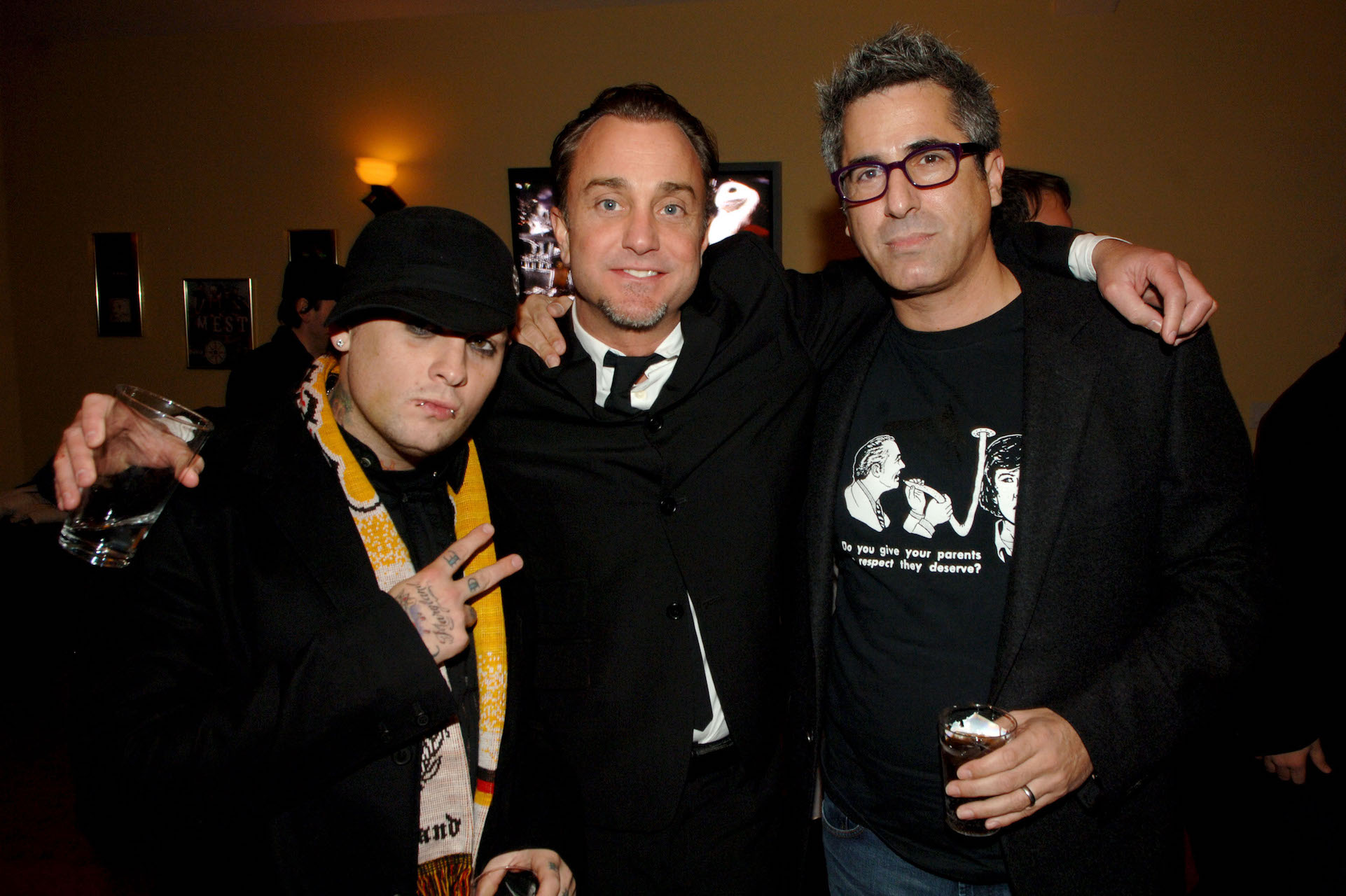
At what point did you decide to branch out into A&R and writing and producing for other acts?
“When I first heard Reel Big Fish play Sell Out I knew it was a fucking hit song and I had to try and help them get signed. I introduced them to the label we were on and set up a showcase for them, and the label signed them. They were the perfect fit for Mojo. But I just thought they were a great band. I never thought it would be a career. My mind was dead set on being a rock star, and I’d already had a taste of that with the Love Hogs, so now I wanted to take it all the way with Goldfinger. But I remember sitting with the executive of the label and saying, ‘Hey man, I brought this band to you and they brought you the Cherry Poppin’ Daddies, which allowed you this 40 million dollar deal with Universal. What are you going to give me in return?’ And he was like, ‘Maybe I’ll take you out to dinner as your reward.’ I remember thinking at the time that I really needed to take care of myself and protect myself, and that’s when I found the band Showoff and did my deal with Maverick. But really my intent was just to be able to help bands. I never thought it would be a way to make money. I just thought I could use all the experience I had being in bands to help new ones coming through. The first two bands that I brought to Maverick – Showoff and Mest – was really just an experiment: how could I help them write songs and get a sound, then take them on tour and help them blow up.”
What was the draw when it came to working with pop acts like Ashlee Simpson and Hilary Duff?
“Well, Hilary Duff was dating Joel Madden, who’s been a good friend of mine for a long time. Good Charlotte loved Goldfinger and wanted to work with me early on, but they’d already hooked up with Eric Valentine and Don Gilmore, so I knew I wasn’t going to end up producing them. But we ended up writing The Anthem together, and that whole friendship really came from a place of like, ‘How can I help these guys?’ No one has a crystal ball, and you can only see how your life has worked by connecting the dots and looking backwards. But that was our first experience of working together, and our friendship just grew from there. As they blew up and became this massive phenomenon we stayed really good friends, and Goldfinger opened up for Good Charlotte a bunch of times. Then when Joel started dating Hilary Duff and she decided she wanted to make a record, the three of us just started writing a bunch of songs together and I ended up producing her record – as a favour, really. A similar thing happened with Ashlee Simpson. She was trying to live up to her sister’s shadow, and she came to me after I’d helped break The Used and said, ‘The Used are my all-time favourite band, and I feel like we could do something really magical together. Do you want to write with me?’ It’s never really been about how I can cash in, because aside from Hilary Duff most of these people were fairly unknown and had no music out when I started working with them. I was only interested in helping these artists out, and expanding as a songwriter and becoming better at writing music. That was my intent.”
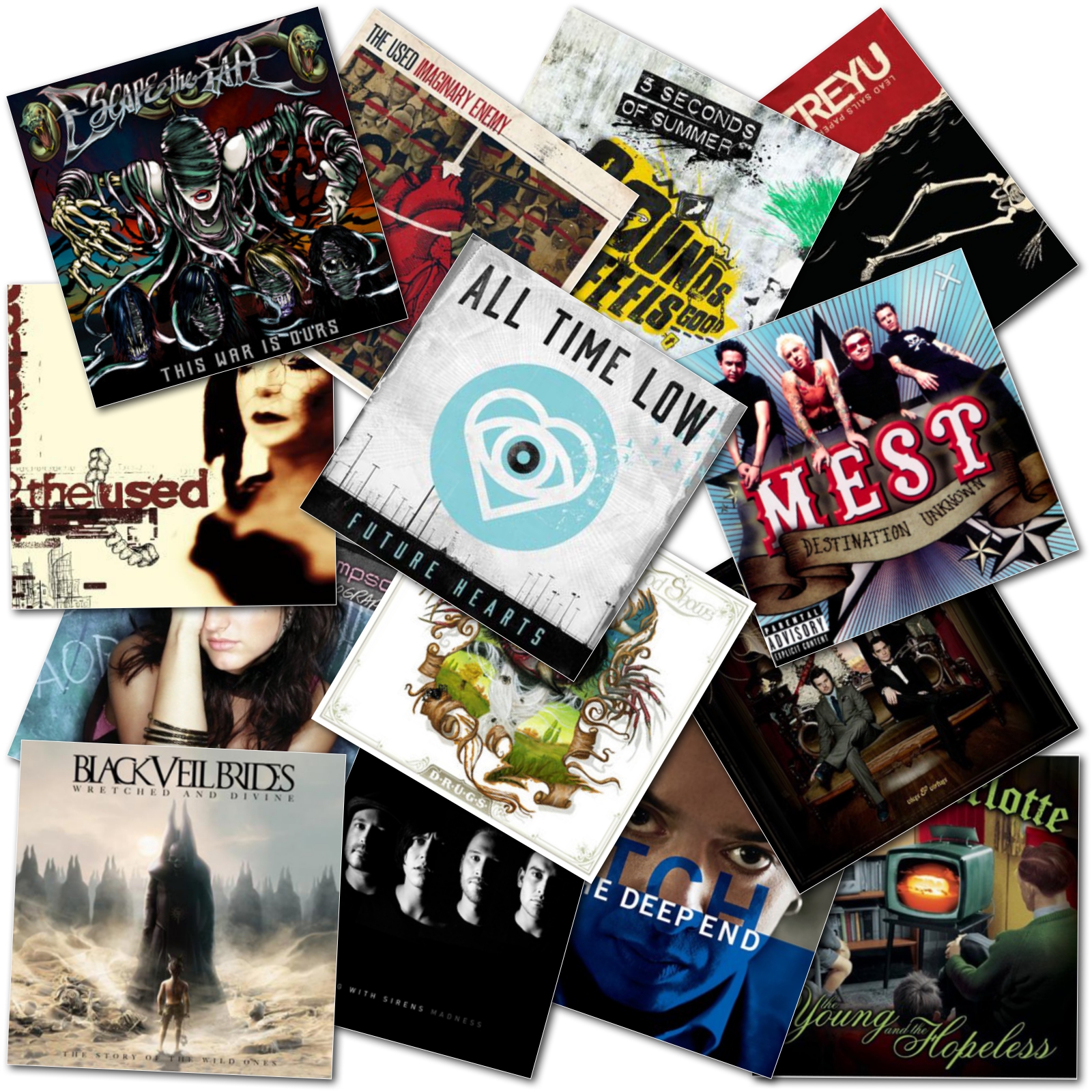
Tell us about working with 5 Seconds Of Summer. A lot of rock fans are frustrated by the fact that they’re getting coverage in rock music publications. They feel that they’re a pop band with no right or claim to the rock world. What’s your take on that?
“They were pitched to me through The Veronicas who told me about this pop-punk band in Australia that they were friends with. They said loads of girls used to come to their shows and they were really starting something down there, so I watched a few videos and I just thought they’d be a fun band to produce and co-write songs with, and develop. Little did I know they’d turn into the huge band they’ve become. I’ve noticed over the years that the bigger a band gets, the more shit is talked about them. And if people want to talk shit about me for working with ‘pop’ bands then that’s fine, because I’ve listened to music other than GG Allin and The Clash, you know. I just have! And I like other music besides punk rock. I love The Beatles and The Who, and I fucking love Duran Duran. I just love good songs. I’d go and see Suicidal Tendencies and crank Careless Whisper by George Michael on the drive to the show. You shouldn’t have to hide the fact that you love good music. Fuck that shit! I understand that as a kid you define yourself as a goth or a punk or whatever music you listen to. But I can’t stand musical bigotry, man. And 5 Seconds Of Summer aren’t some pop band that were put together by a label. They wrote all their own music up until they got signed, and then they collaborated with other writers. But they’ve co-written pretty much every single song that they have. And what are you going to do if One Direction offer to take you out on tour, and you have the opportunity to introduce all these kids to your music: say, ‘No I don’t think I want that. I’d rather tour in an underground band for the rest of my life and have to work at Nandos.’ Come on! How would you say no to that experience? I don’t know any 16 year old musician that would say, ‘No I don’t want to play in front of 50,000 people a night.”
You’ve worked with so many acts over the years. Is there is a distinct mindset each time you enter the studio? Is every experience different?
“A good song is a good song at the end of the day. I really believe that if I can sing it on an acoustic guitar, and you can remember it and it makes you feel something, then it’s going to be great whatever style it’s in. That’s my overall mindset with every album that I make. But that being said, the working methods are always different and personalities really define the tone of an album and how it ends up sounding. It all depends on who is singing the song and what they’re singing about, you know.”
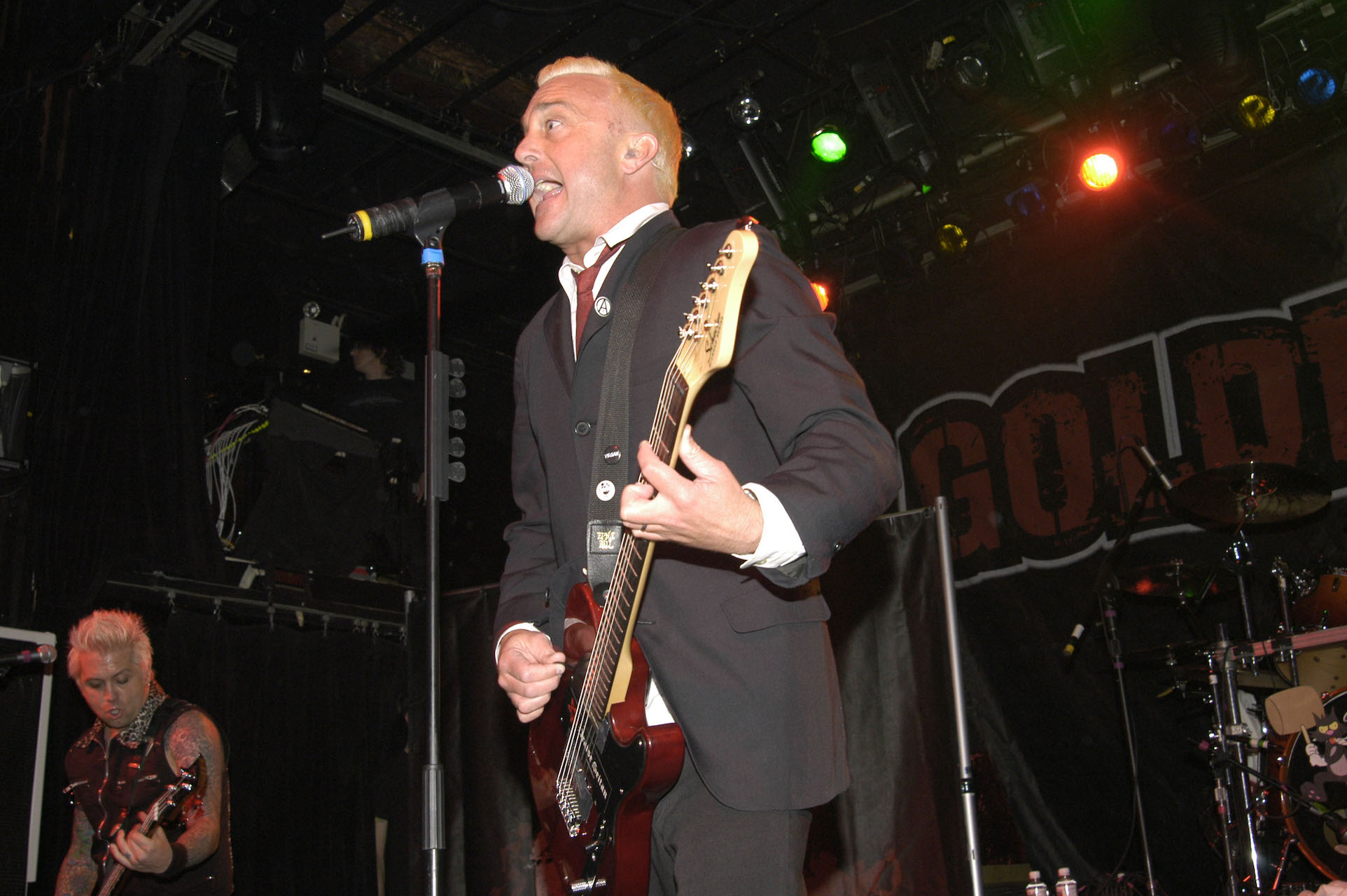
Which albums are you particularly proud of?
“The Used’s first record [The Used] was really where I came into my own as a producer. I figured out how to really program stuff and get good sounds, and I learned how to use synthesizers and figure out string parts. So The Used’s first record is a real moment in my life that I’m proud of. The City Sleeps record [Not An Angel] which no one really heard is another one that I still listen to today, 10 years later. I was honoured to be able to work with those guys. And I really feel like that Madness record that I did with Sleeping With Sirens has some of the best songs that I’ve ever co-written with anybody. But when I listen to Sounds Good Feels Good [5 Seconds Of Summer’s latest album], I feel as proud of that as any other record that I’ve made because the band really took a stand with that record. They had pressure from their management and record label to write heavily-programmed, commercial pop music that would be able to compete with pop artists, but they said, ‘No, we’re a rock band and we’re going to make an album with live drums and guitars, and that’s going to be what we do.’ To be able to stand by that and also have Eric Valentine mix the album, so to come full circle in that way too, is something that I’m really proud of.”
Are you still a punk rocker at heart?
“I am. Some manager was doing wrong by one of my artists recently and I fucking went off at him. I hate doing that and I regret it now, but I can’t help but want to protect the art and the music. I feel the same about Goldfinger when we play shows; I’m still looking for the balcony or the highest pier to jump off into the crowd, and I play every show like it’s the last show of my life. That mentally of giving everything that you have and doing it yourself comes from punk rock, and I’ll always stay true to that. If I’m working for somebody else then I may as well go back to selling shoes.”
What does the future hold for Goldfinger?
“I don’t know. A couple of the original members are no longer in the band; they’ve gone and got careers and lives and they’re not going to be able to just drop it all and go on tour for a month every year. So I’ve got to really look at that, man. I love playing shows and being on stage. The tour we did last year in the UK with Slam Dunk Festival was great, and there were a couple of really fun headliners too. But to be honest I feel that it’s probably time to put it to bed. Maybe someday I’ll bring it back if it feels right, but right now it doesn’t feel right. What I am going to do? Go and play a show somewhere in front of 300 kids rather than be at home with my own kids? That doesn’t really make sense to me at this point in my life.”
Ultimately, how would you like to be remembered?
“As a good guy that stood up for his artists and took care of his family – just a good guy, you know?”
